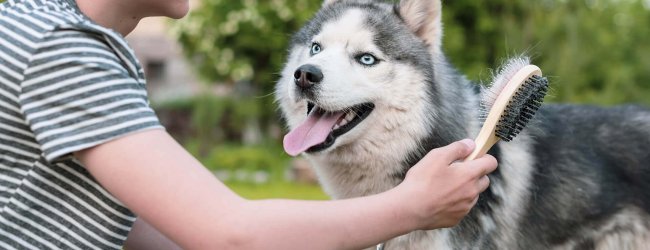11 Breeds Of Cats That Like Water (And Why!)
You wouldn't be the first to wonder: do cats like water? Well, in the case of these active, outdoor cat breeds, the answer's a big yes! Here are 12 cat breeds that love water - and how you can keep them safe on your splashy adventures together.
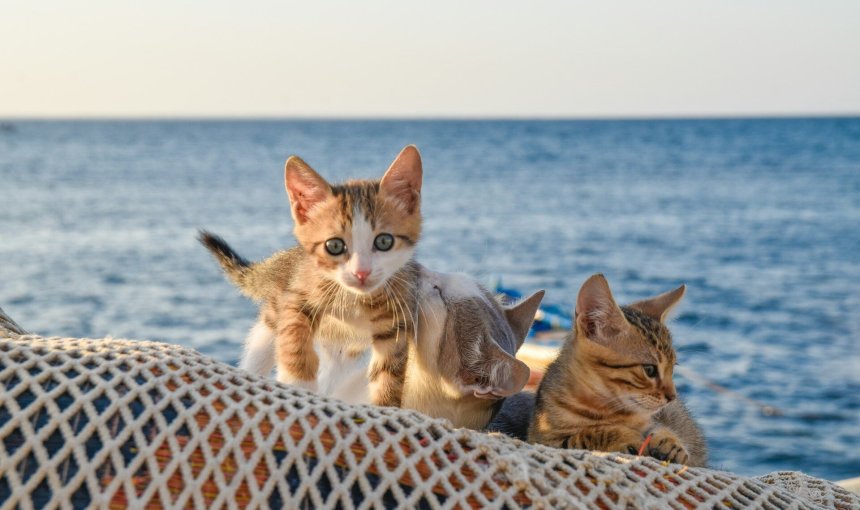
The sight of a swimming cat might be a rare one, but these water cat breeds can’t get enough of it. In this post, we’ll cover whether cats can swim, do cats like water, and 11 very special breeds of cats you might have to fish out of your community water fountain.

Find out where your cat spends their time.
Read moreCan cats swim?
Yes, they can actually!1 In fact, some wild cats – like leopards and tigers – take regular dips in lakes and ponds around the hot tropical jungles where they live. Jaguars in the Amazon Rainforest even dive into water to hunt prey. Even domestic cats are capable of swimming – but usually only if they absolutely have to. Some cat breeds enjoy swimming and splashing around the water more than others.
Do cats like water?
Well, yes and no. Domestic cats evolved from wild cats that primarily lived in hot, dry desert regions where water was scarce. Because of this, cats don’t need as much water per day as your dog.
One other reason why cats might hate getting wet is because wet fur is generally harder to sneak around in. (Out of sight or smelling range of predators.) But besides, cats might even enjoy the sight, sound, or smell of running water. You might find yours staring in fascination at a trickling faucet, or even batting at it.
Your cat is also more likely to like water if you introduce them to it from a young age.4 In fact, wild cats that live in warmer, sweatier climates – like lions, leopards, and tigers – like to take the occasional dip in a pond to cool off. Wild cats from colder regions – like lynxes or bobcats – tend to avoid water. (It’s just too cold!)
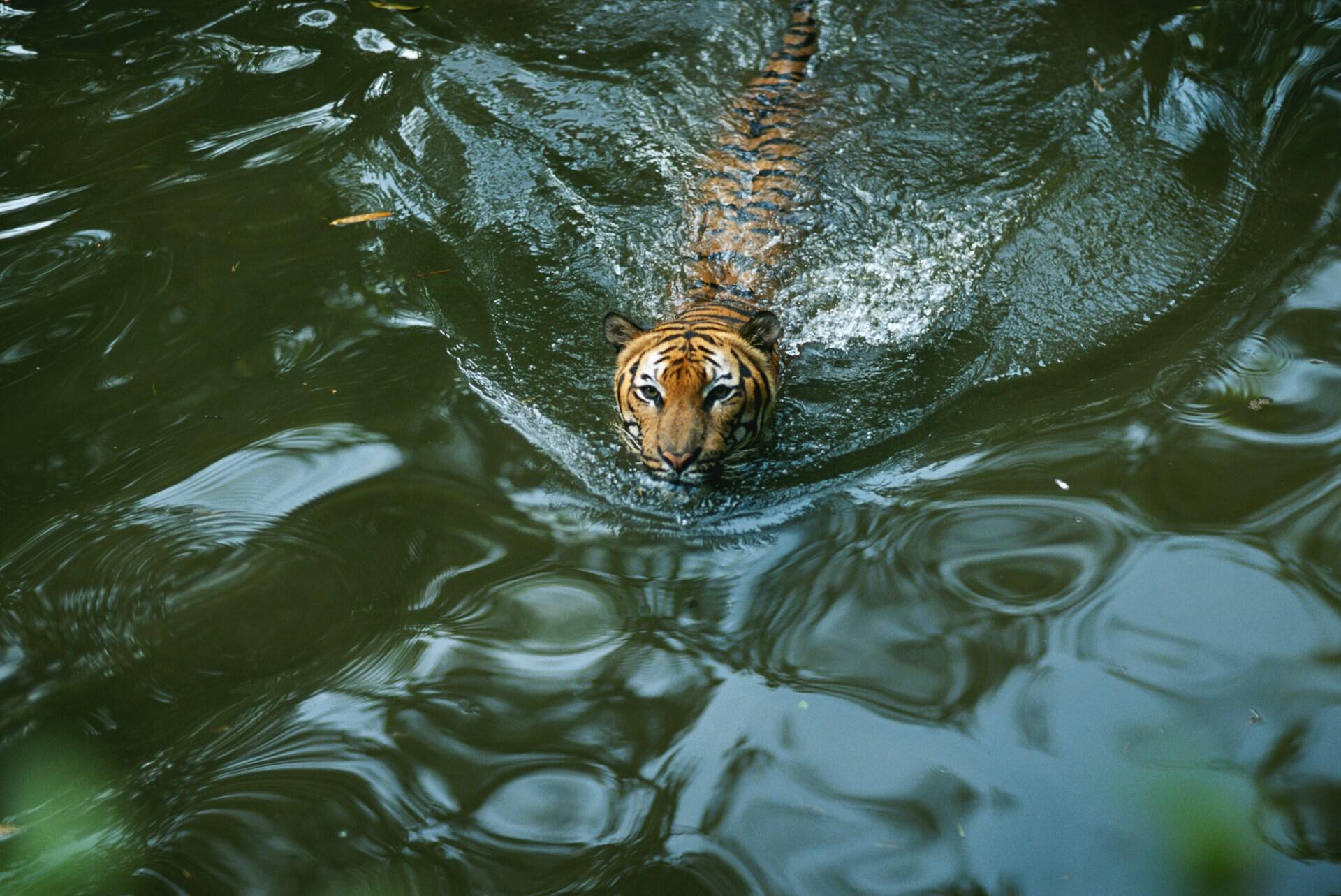
So if you come across a swimming cat in the wild or at a friend’s, it’s likely they’ve been doing it since kitten-hood. Meaning, it’s not really the case that cats don’t like water. It’s more the case they’re just not used to it.
But for these water cat breeds, that couldn’t be further from the truth.
11 cats that like water
Maine Coons
Big, strong, and excellent swimmers – Maine Coons are known as the gentle giants of the cat species. They’re actually the official state cat of the US state of Maine! And one reason they love the water? Their ancestors were aboard on ships for most of their lives. Maine Coons have thick, water-resistant fur. That’s why they’re built to survive the harshest winters outdoors. This includes walking on wet, snowy, or even icy surfaces.
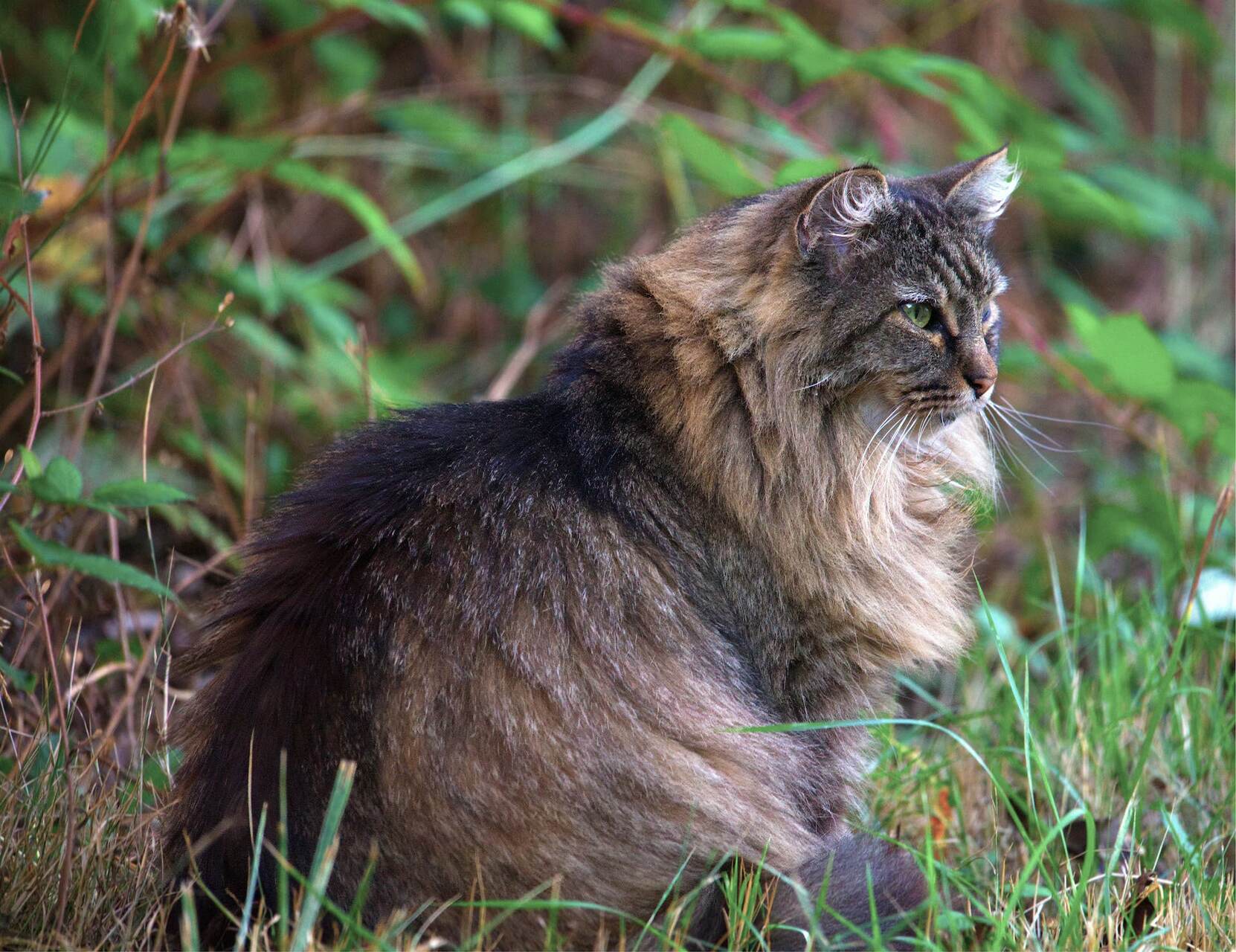
Norwegian Forest Cats
Born and raised to hunt rodents on Viking ships, the Norwegian Forest cat is another badass little cat breed that loves the water. Much like Maine Coons, Norwegians are big cats with sturdy bodies and a double coat to help them thrive in cold winter climates. Plus, unlike some wild cats, Norwegian Forest cats can safely swim in water without freezing. Their thick coats act as a water-repellent and keep them warm and dry.3
In fact, if you have a fish tank at home, watch out! Your Norwegian might try to “catch” them if left unsupervised.
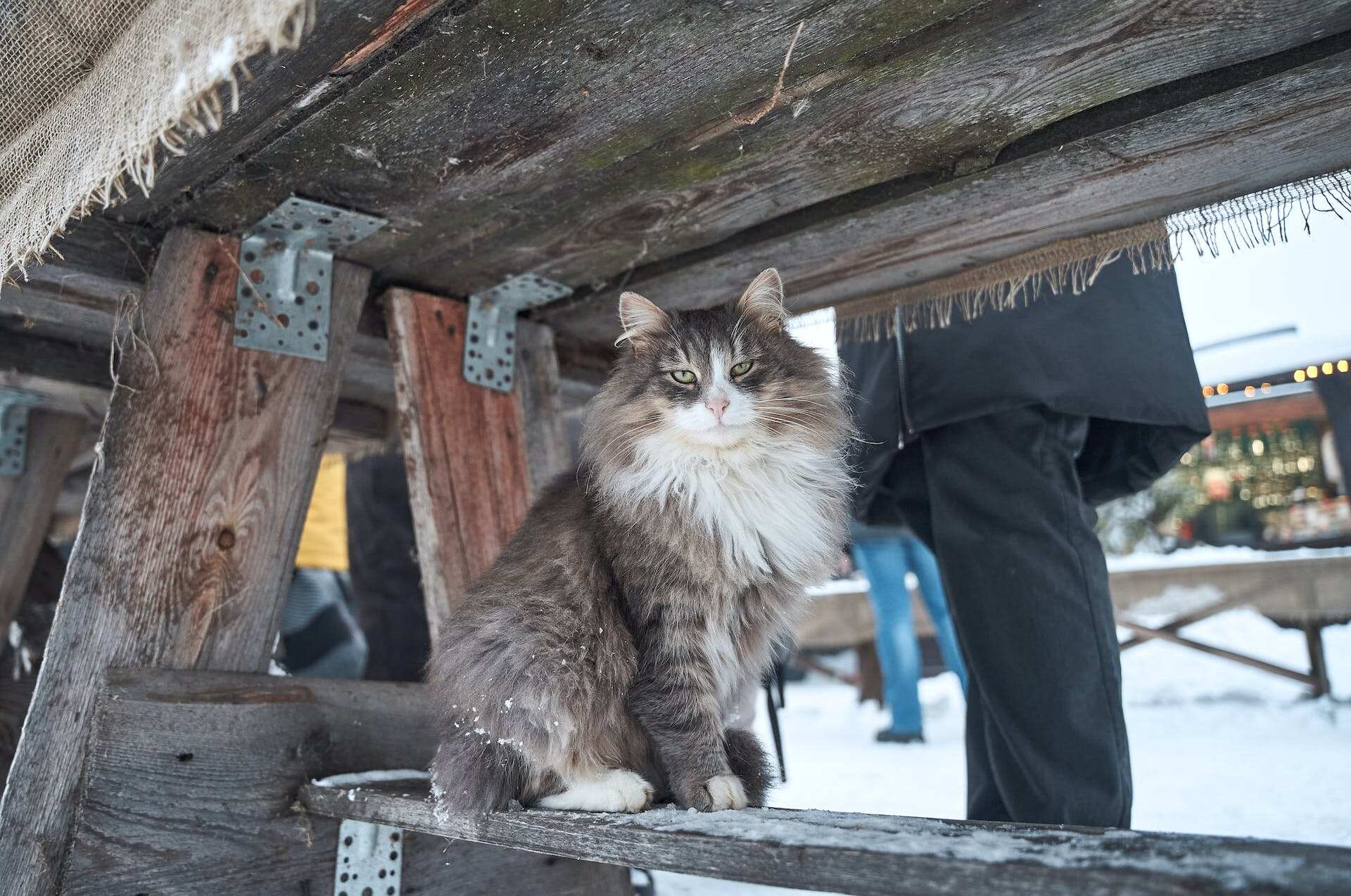
Bengal Cats
A cross between Asian leopard cats and domesticated cats, Bengals are active, friendly, outdoorsy cats known for their love for water. Your Bengal might follow you right into a pool, lake – or even your shower! And because they tend to be high-energy, you’re more likely to find a Bengal exploring the outdoors and expanding their territory.
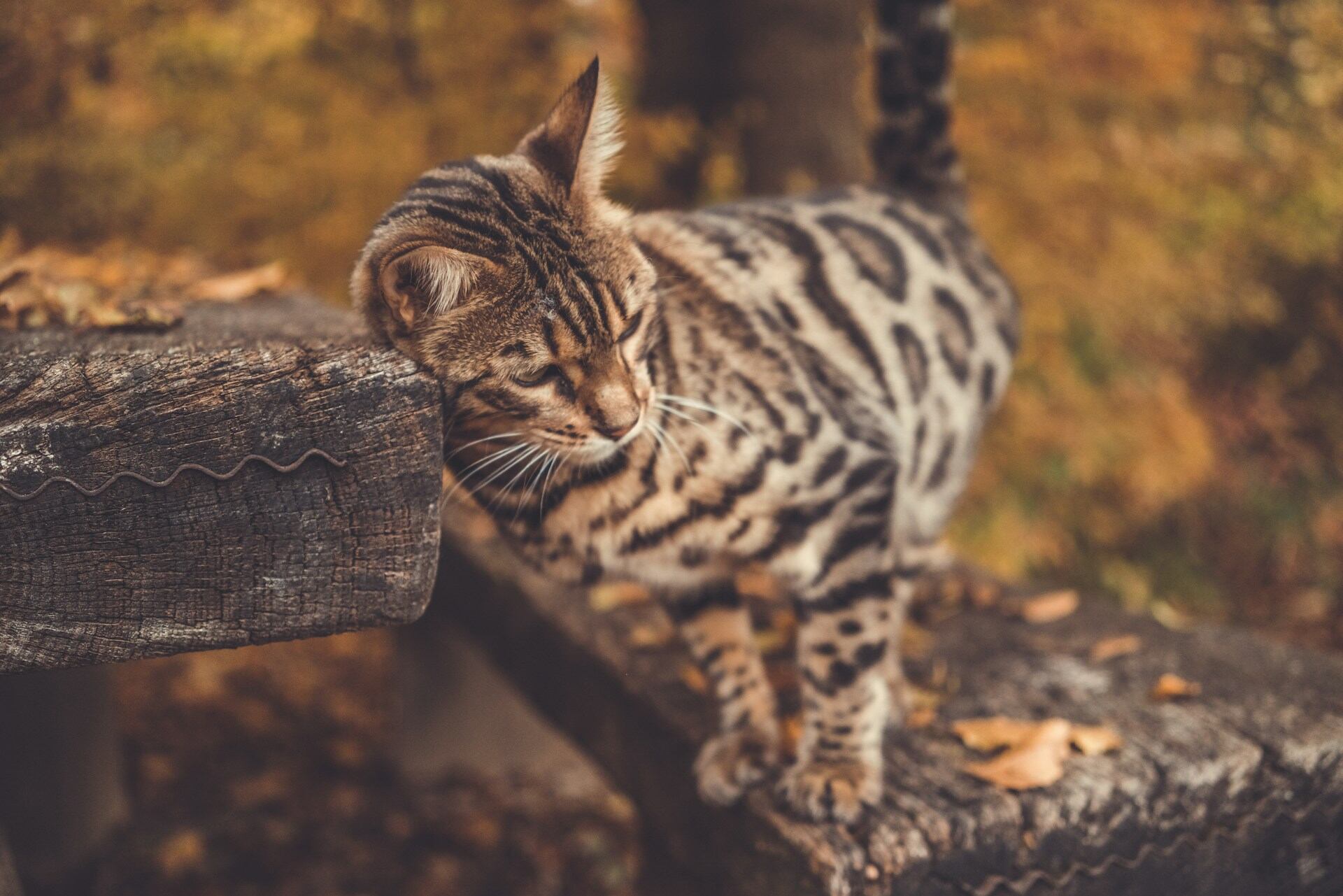
Egyptian Maus
Originally from Egypt, Maus are actually closely related to Maine Coons! These beautiful cats are one of the rare spotted domestic cat breeds. In fact, their name “Mau” simply means “cat” in Egyptian – so like their cousins, the Abyssinian cat, Maus are directly descended from cats from ancient Egypt.5
Much like Maine Coons, Maus are highly energetic and athletic – needing a ton of exercise per day. So make sure to keep them busy with scratching posts, cat trees, and indoor toys. Maus also love playing with water. They can even learn to turn on faucets by themselves at home!6 So if you’re taking them outdoors to play, they’ll have a blast around your lawn sprinklers.
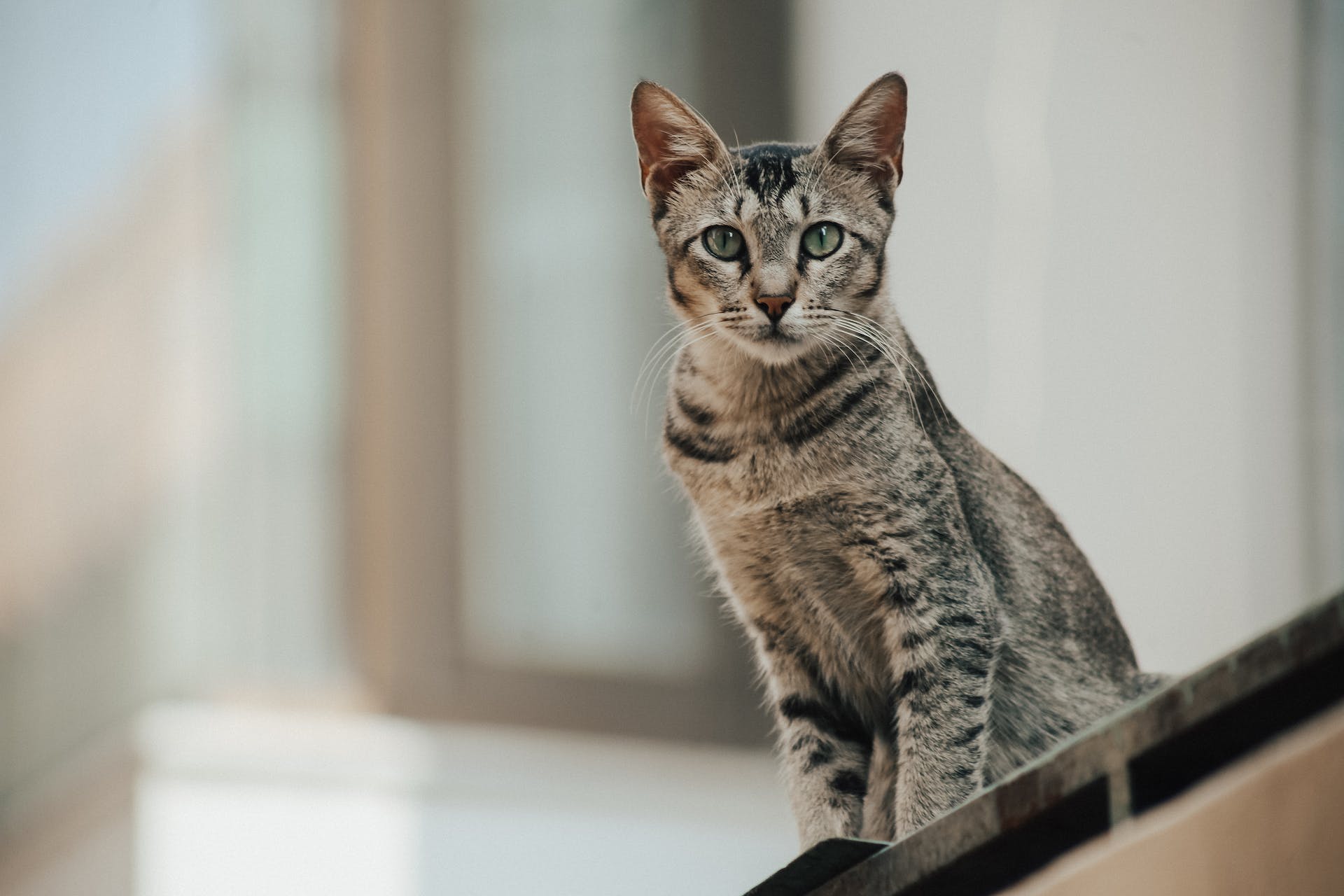
Abyssinian Cats
Abyssinian cats, or just Abys, are a gorgeous, red-furred breed of small- to medium-sized cats – and cousins of the Egyptian Mau. They’re originally from Ethiopia in Africa (then known as Abyssinia.) Abys are highly curious, energetic, and love to jump around and play at home! They’re sociable and friendly by temperament and prefer spending time in groups.
Because they’re so curious and inquisitive, Abys are likely to become a nuisance at your neighbors. It’s why most cat parents keep their Abys as indoor cats. Your Aby also has a strong affinity to water – they might dive into a local fountain outdoors or splash around their water bowls quite a bit.
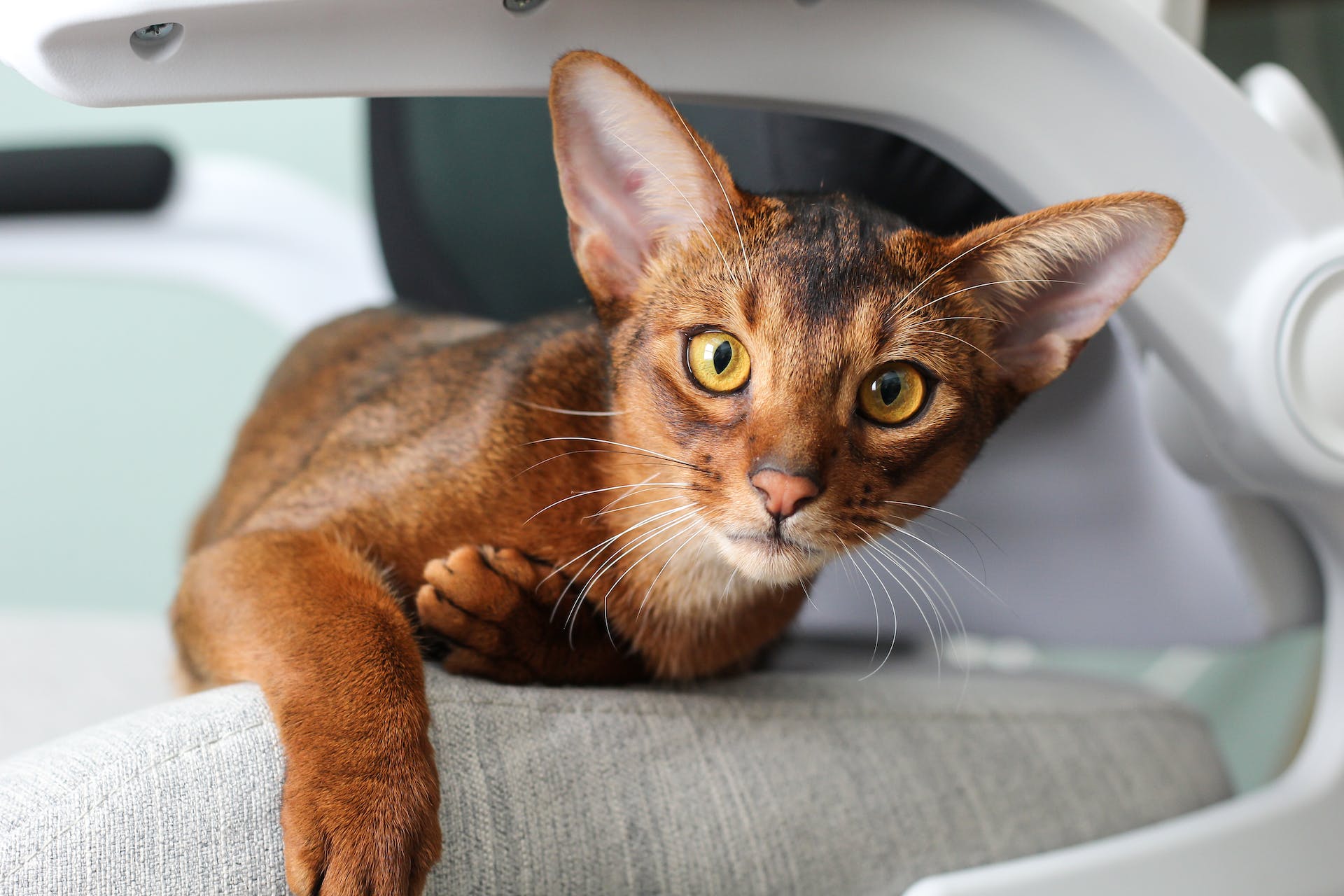
Siberian Cats
Hailing from the snowy forests of Siberia, this hardy, water-loving cat breed is actually the official national cat of Russia! (Also why they’re called the Moscow Longhair.) Siberian Cats were originally forest-dwellers before they made their ways indoors to catch mice and other pests.
Much like Norwegian Forest cats, Siberians have water-repellent fur and love to splash and play in water.7 Their triple coat and paws are built to handle ice and snow in the harsh Russian climate.
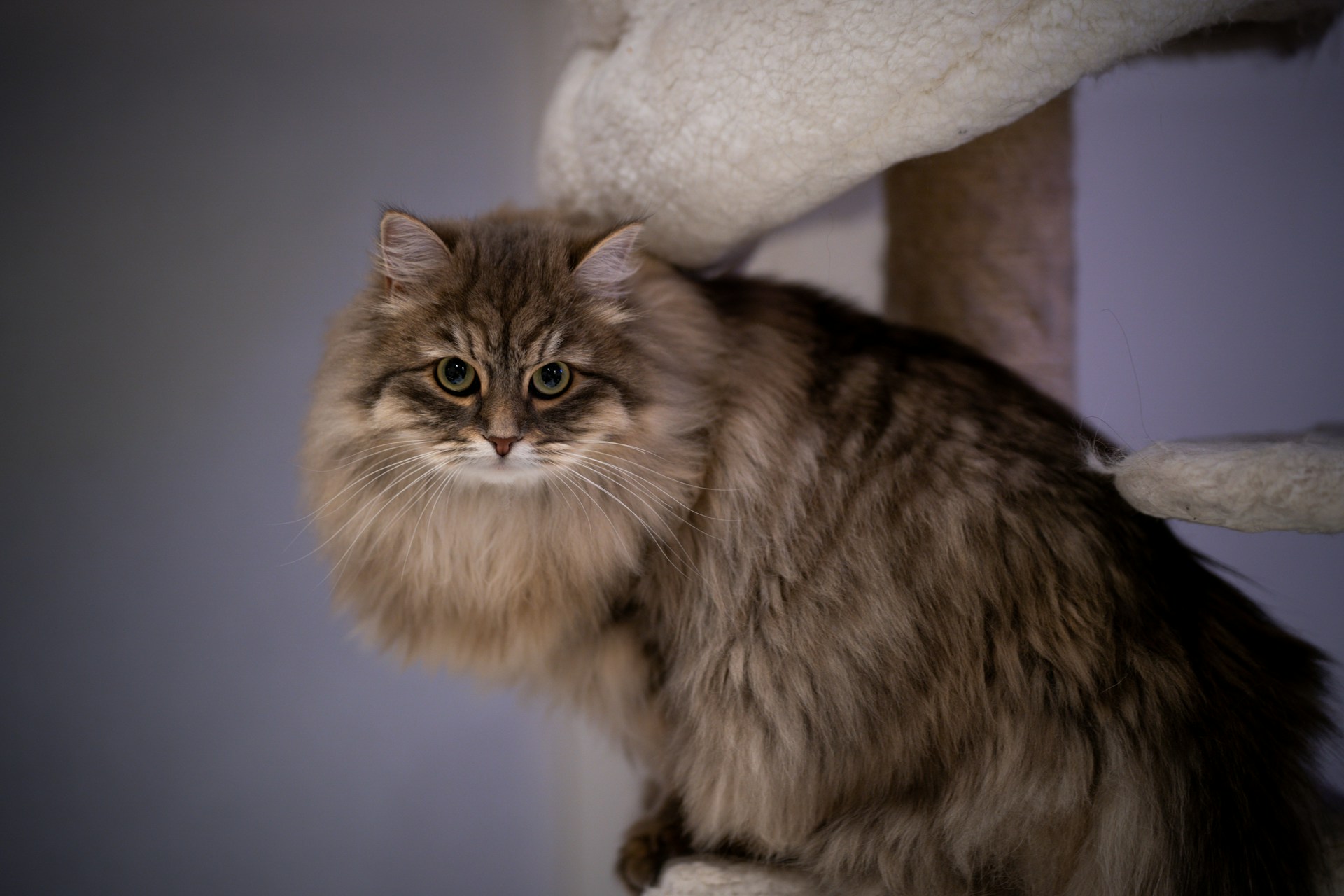
Savannah Cats
Descended from the African serval, Savannah cats are another gorgeous spotted cat breed you can actually train to walk on a leash! Much like Siberians, they’re highly energetic, lively cats who you’ll find jumping to all sorts of high spots around your house – including your refrigerator. Savannahs are also fond of water and even enjoy dipping and diving into lakes and ponds. (You might even find yours sneaking into your shower with you.)
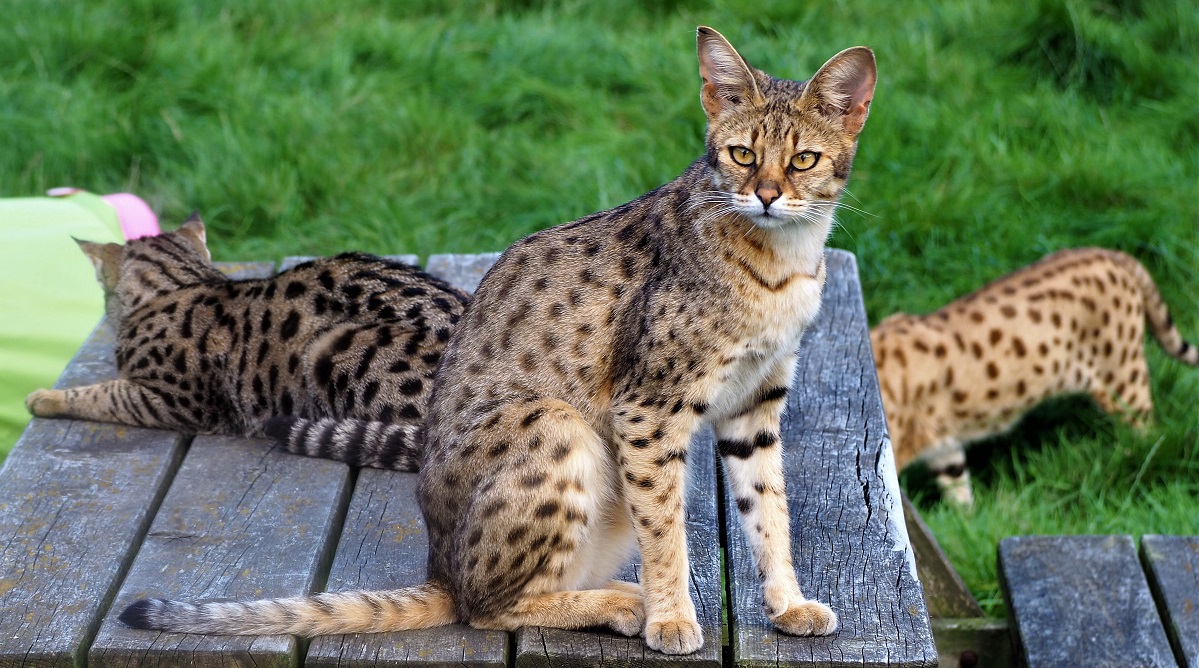
⚠️ Just watch out for your Savannah cat’s inquisitive nature. They’re smart enough to figure out how to open doors – which might result in an escape attempt outdoors due to their high prey drive.
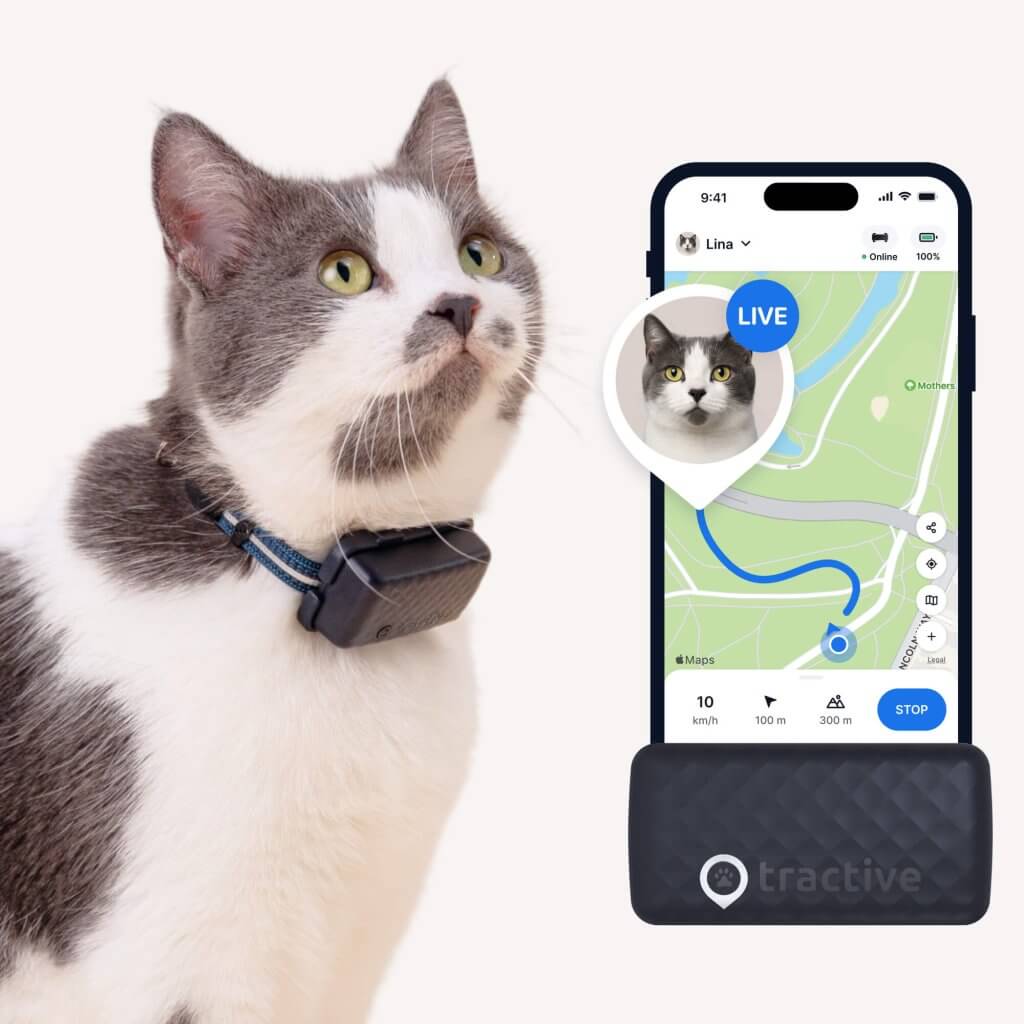
Track your cat wherever they go
Get real-time location information, wherever they go. Find out when they go somewhere they shouldn’t, with Virtual Fences. And discover their favorite spots with Territory.
British Shorthair Cats
Cute, chill, and very cuddly, British Shorthairs are an excellent breed for first-time cat parents and families. Much like Maine Coons, they’re another gentle giant who are highly affectionate and get along famously with other pets and people. British Shorthairs’ thick undercoats are water-repellent and help them splash around happily in pools and ponds wherever you take them. (Or your bathroom and kitchen sinks, if you’re keeping them indoors.)
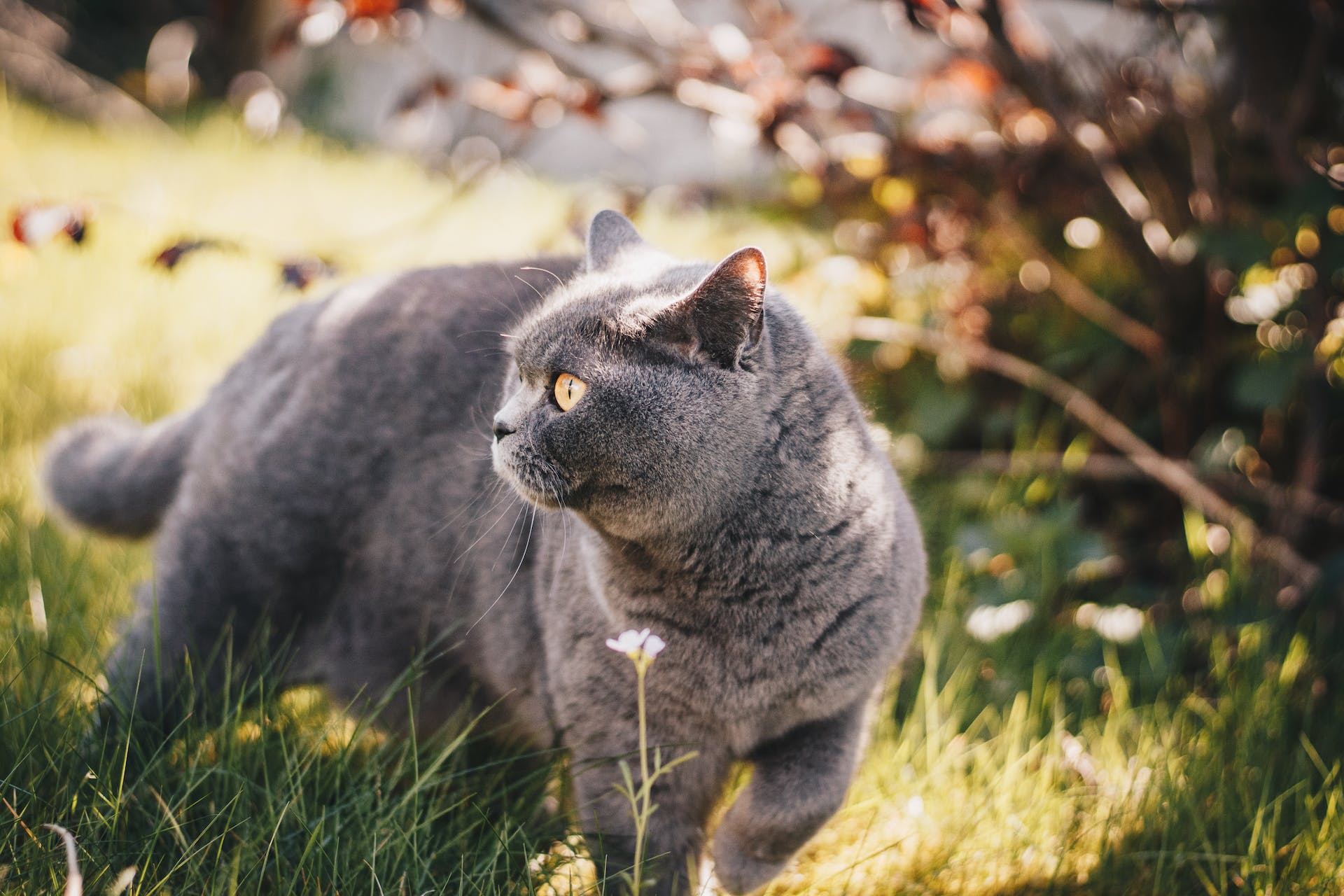
Turkish Vans
Like their name suggests, Turkish Vans are a gorgeous breed of water-loving cats originating from Turkey. They’re also most likely named after Lake Van in south-east Turkey. Turkish Vans adore spending time in and near water – in fact, their coats are so water-repellent, you might have trouble bathing yours! You might even see yours playing with their water bowl or happily following you into water for a swim.
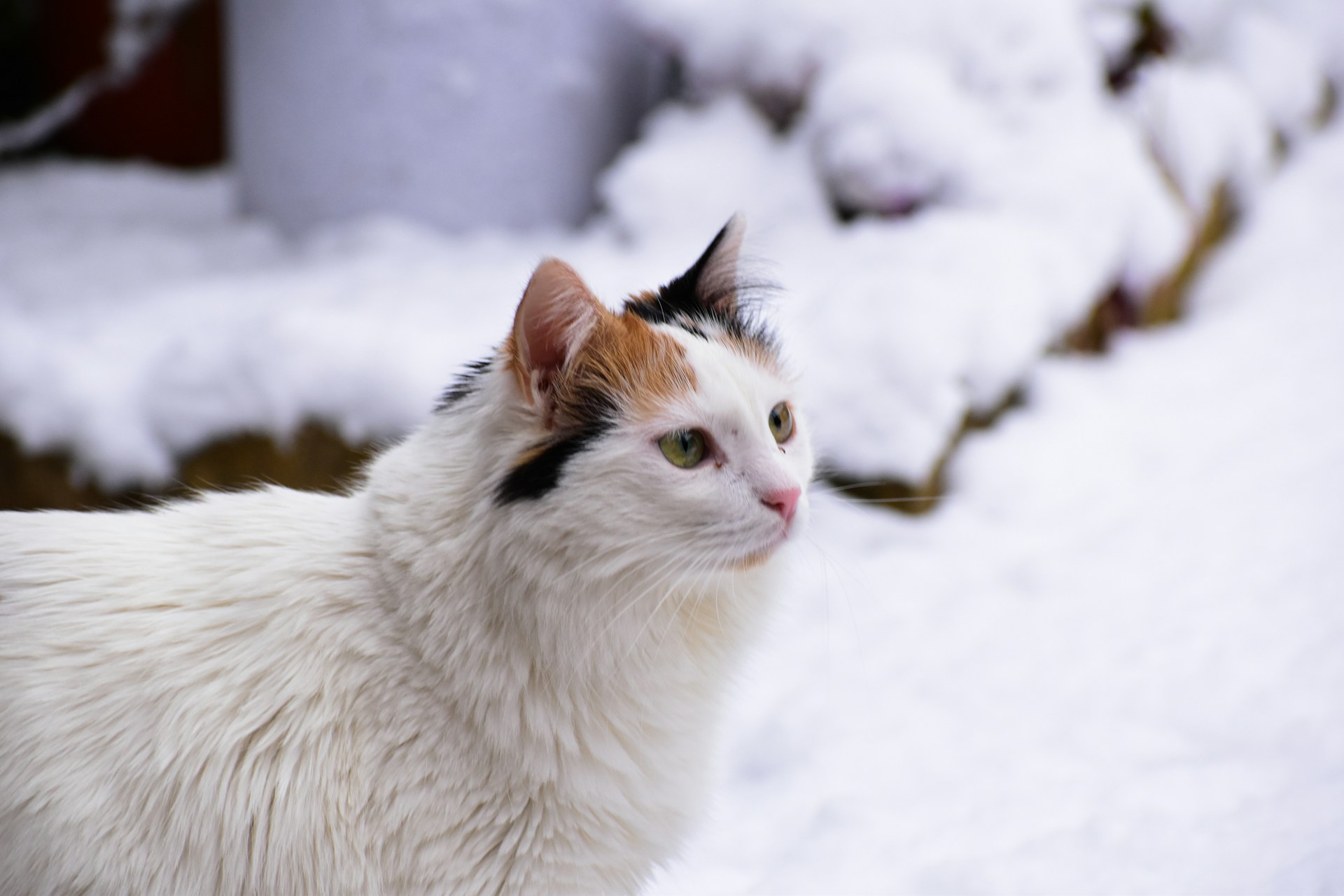
Turkish Angoras
Much like their cousins, the Vans, Turkish Angoras are one of the oldest water-loving cat breeds – originating from central Turkey. They tend to be smaller and more slender than Turkish Vans. Turkish Angoras are intelligent, friendly, eager to please – and notoriously clingy. They tend to pick one member of your household as “their person” and stick to them like glue after. And like Vans, you’ll also find them splashing around your kitchen sink or happily hopping into a pool or pond.
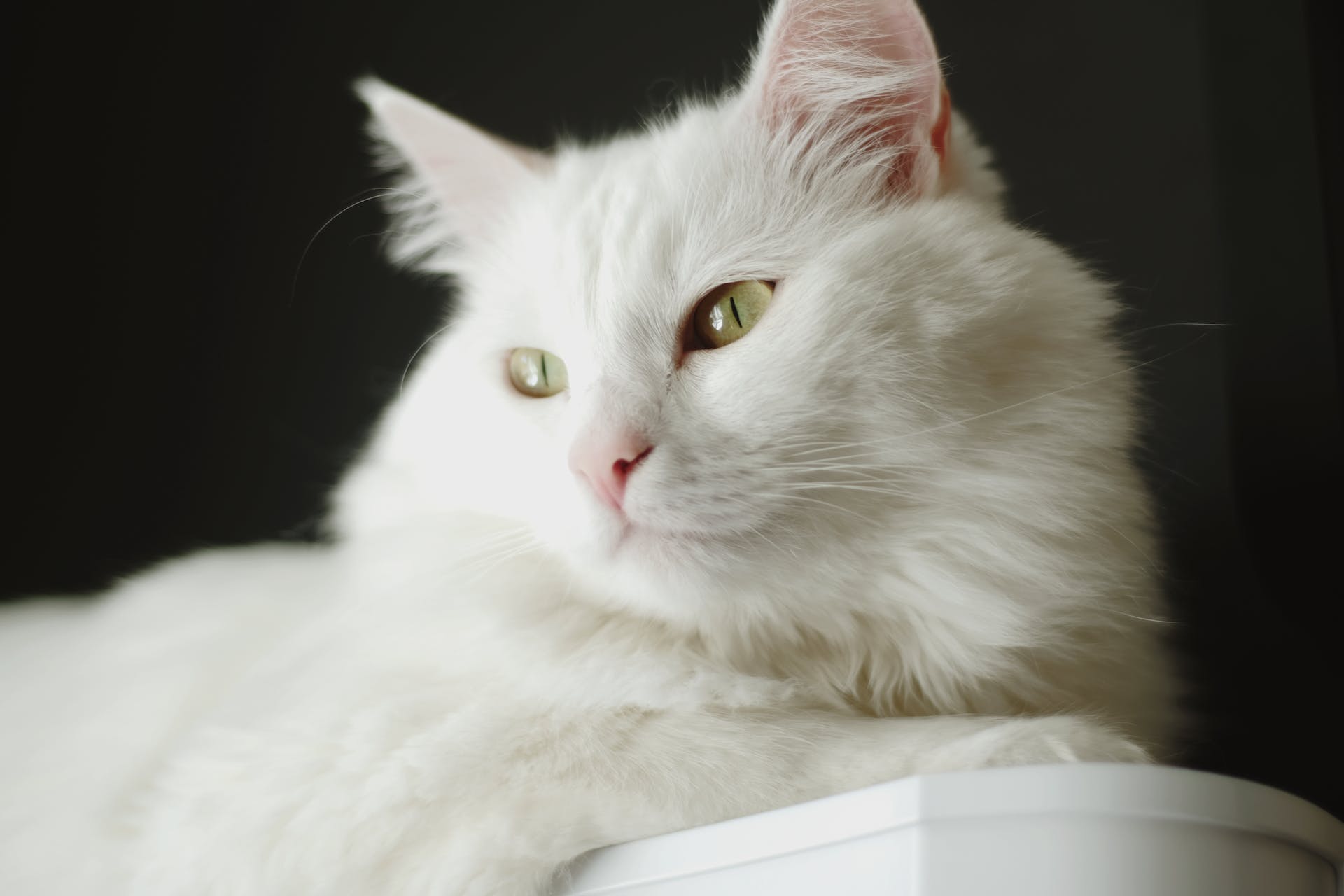
Siamese Cats
Probably one of the most recognizable cat breeds, Siamese cats are affectionate, highly intelligent cats that are famous for their sociable temperaments. They’re originally from South East Asia, where they grew up near water bodies like rivers and canals – and often swam and fished for food.8
In fact, they’re so energetic and friendly, they’re considered similar to dogs, behavior-wise. And like their fellow water-loving cats, you might find your Siamese batting your faucets or leaping right into a bathtub. Your Siamese might often test out water with their paws before jumping right in. (Much like they might in the wild, when it comes to catching prey.)
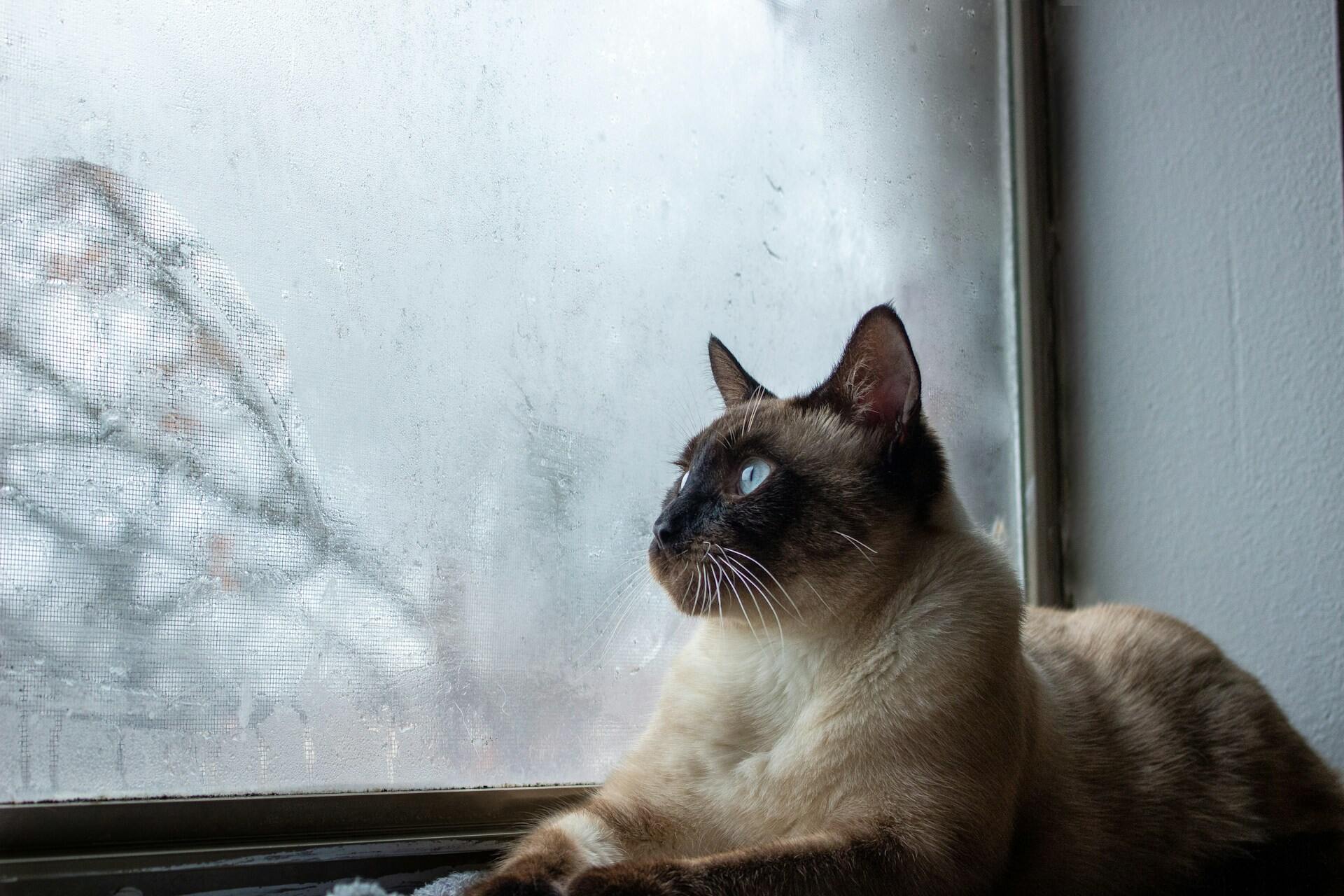
And if you’ve liked this post, share it with a friend or loved one – and let’s help build a safer, kinder world for our furry friends together.

